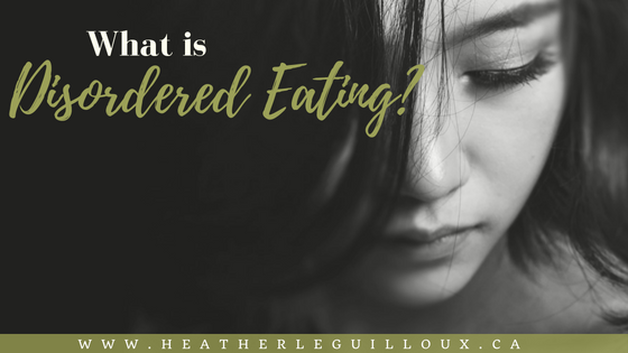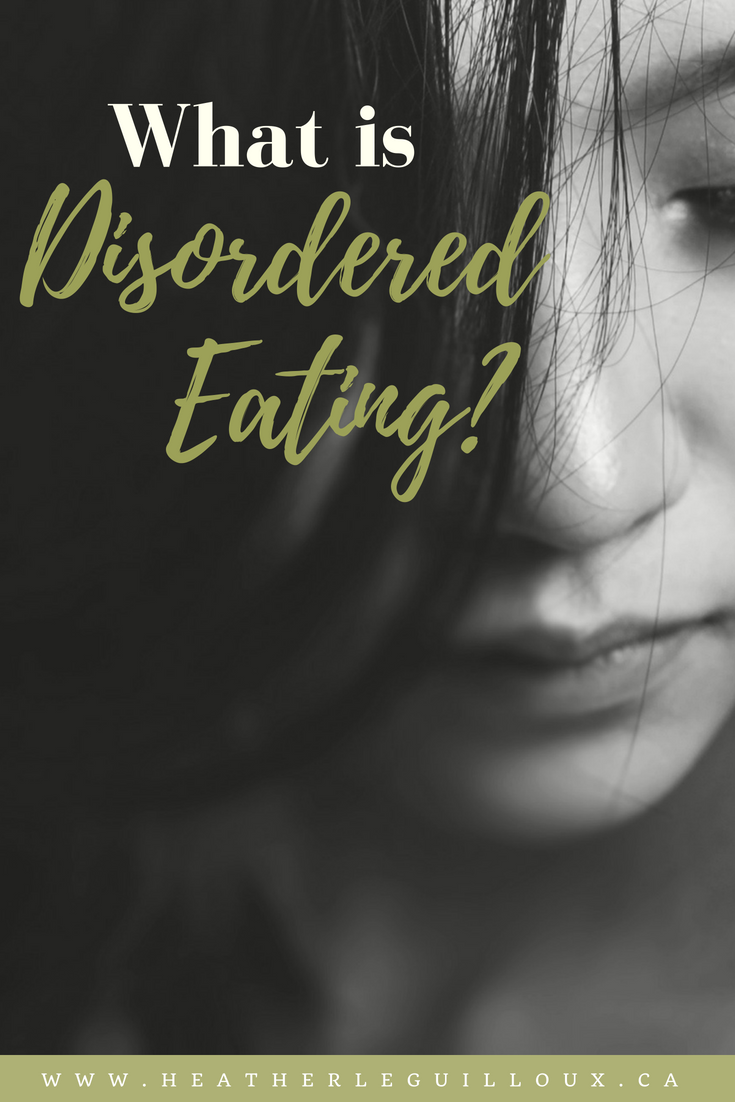|
|Every single day, many people in the world are struggling with issues related to their eating habits, self-esteem or body-image, or even experiencing the serious consequences of an eating disorder. It can be confusing to understand these concerns and to know when to reach out for more help, and so the focus of the next five articles on the blog will be to demystify these real-life mental health concerns.
Check out the other articles in this series:
The following article will highlight the possible precursors to the development of an eating disorder by exploring the prevalence, behaviours, dangers and help available for disordered eating. The information shared in this article can relate to signs and symptoms to check for if you are concerned about your own situation or the health and well-being of a loved one.
Please note: The information in this article is not medical advice. If you are concerned about your health and well-being, concerned you may have an eating disorder or if you or someone else is in an immediate crisis situation, reach out to a health professional, crisis line, or your nearest emergency service for more support.
What is Disordered Eating?
According to the National Eating Disorders Collaboration, Disordered Eating (DE) can be defined as "a disturbed and unhealthy eating pattern that can include restrictive dieting, compulsive eating or skipping meals".
Compared to normal eating behaviours which include ingesting a healthy and balanced diet, experiences of Disordered Eating go far beyond these norms to the point of becoming dangerous for the health and well-being of the individual. The causes of developing DE behaviours are many and may include having experiences of extreme stress or trauma or being influenced by social pressures or behaviours that seem normal such as dieting or achieving a certain outward appearance. "Dieting is the number one cause of the onset of an eating disorder and seeking help early is the best preventative measure. ~NEDC
The development of Disordered Eating may be an unconscious coping mechanism to try to help regulate or soothe emotional distress. It's important to consider that although many of the behaviours of disordered eating relate to food or consumption, the underlying causes are much more broad and undefined, even for the person experiencing these concerns.
Prevalence of Disordered Eating
Disordered Eating Behaviours
Some examples of Disordered Eating behaviours can include:
Many of the behaviours of individuals who are experiencing Disordered Eating may be precursors to an eating disorder and may not qualify for an official diagnosis. However, these behaviours can be very dangerous for the health and well-being of the individual which will be discussed next.
Dangers of Disordered Eating
The dangers of Disordered Eating can take a toll on the emotional, physical and social areas of an individuals life and can have devastating consequences on an individuals self-esteem. An individual may feel shame or guilt for engaging in these behaviours which can lead to isolation, depression or suicidal ideation.
Some of the risks of disordered eating include:
Disordered Eating: Identifying, Treating, Preventing & Differentiating It From Eating Disorders Help for Disordered Eating
It is important to note that, even if these behaviours related to eating, mental health, or social isolation have been happening for years, it is possible to work towards creating healthier habits and preventing this inevitable trajectory towards developing an eating disorder.
Some examples of finding help include:
MENTAL HEALTH RESOURCE VAULTGreat!Check your email for instructions on how to access the Mental Health Resource Vault. :)
The next article in this series explores 3 Types of Eating Disorders including their descriptions, symptoms and the health-related risks involved with each of the disorders.
References: nedc.com.au, spectrum.diabetesjournals.org, nedic.ca
The links on this page may be embedded with affiliate links that I am compensated for at no additional cost to you.
14 Comments
'Weight' is such an issue for so many folks and even loosing weight can cause problems if it's done the wrong way. I once did a post about the harm of crash dieting that I was amazed to discover as a result of the research, could also be harmful, even while you did lose weight (temporarily). Considering the obesity and related illness epidemic that to many in the world seem to be suffering from, your posts here are more than necessary. Thanks for writing them.
Reply
3/8/2020 01:46:50 pm
You're very welcome, Debrah. Dieting can cause a lot of health problems for many people, and it's always good to check with a doctor or nutritionist with any major weight loss or gains.
Reply
Dan
7/9/2018 06:39:06 pm
This is such an important topic and I look forward to the rest of the articles in this series!
Reply
3/8/2020 01:47:27 pm
Hi Dan, thanks for stopping by the blog! I hope you found the rest of this series helpful to read, as well.
Reply
7/17/2018 12:02:18 pm
I am so glad to see people openly talking about this. Sadly, eating disorders are common and are not addressed as being as big of a problem as they are. I have always struggled with viewing food in a healthy way, and, like you, I am ready to see a change in the way we all view eating! Thanks for sharing!
Reply
3/8/2020 01:49:07 pm
Eating disorders and having a troubled relationship with food impacts so many of us in our daily lives. I hope this article has shed some light on how serious it can actually be. Thanks for your comment, Ashley!
Reply
7/17/2018 01:51:20 pm
Thank you so much for posting this! Disordered eating is something that needs to be discussed openly. Thanks for the great info!
Reply
3/8/2020 01:49:39 pm
You're very welcome, Margaret. Thanks for your comment!
Reply
7/17/2018 07:40:36 pm
Such an incredibly important topic Heather! Thank you for shedding light on it. This is definitely something we should all be able to discuss openly so that anyone who needs help can have easy access and tons of support ♡.
Reply
3/8/2020 01:50:25 pm
You're very welcome, Sara. Thanks for being such a great supporter of my blog! <3
Reply
7/18/2018 08:12:25 am
This is such an important topic and way more common than we realize. Thanks for sharing!
Reply
3/8/2020 01:50:57 pm
You're very welcome! Thanks for stopping by the blog.
Reply
3/8/2020 01:52:32 pm
I'm glad that you are also raising awareness for eating disorders on your own blog, Nyxie. It is such an important topic to discuss. Thanks for stopping by!
Reply
Your comment will be posted after it is approved.
Leave a Reply. |
Welcome to the blog!↓ That's me, Heather. :)
MENTAL HEALTH RESOURCE VAULTGreat!Check your email for instructions on how to access the Mental Health Resource Vault. Categories
All
Popular Posts// 25 Positive Mindset Quotes
// Self-Care Bullet Journal Spreads // 7 Ways Your Physical Health is Connected to Your Mental Health |





 RSS Feed
RSS Feed
















